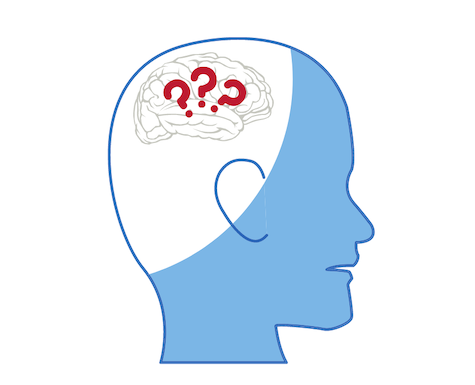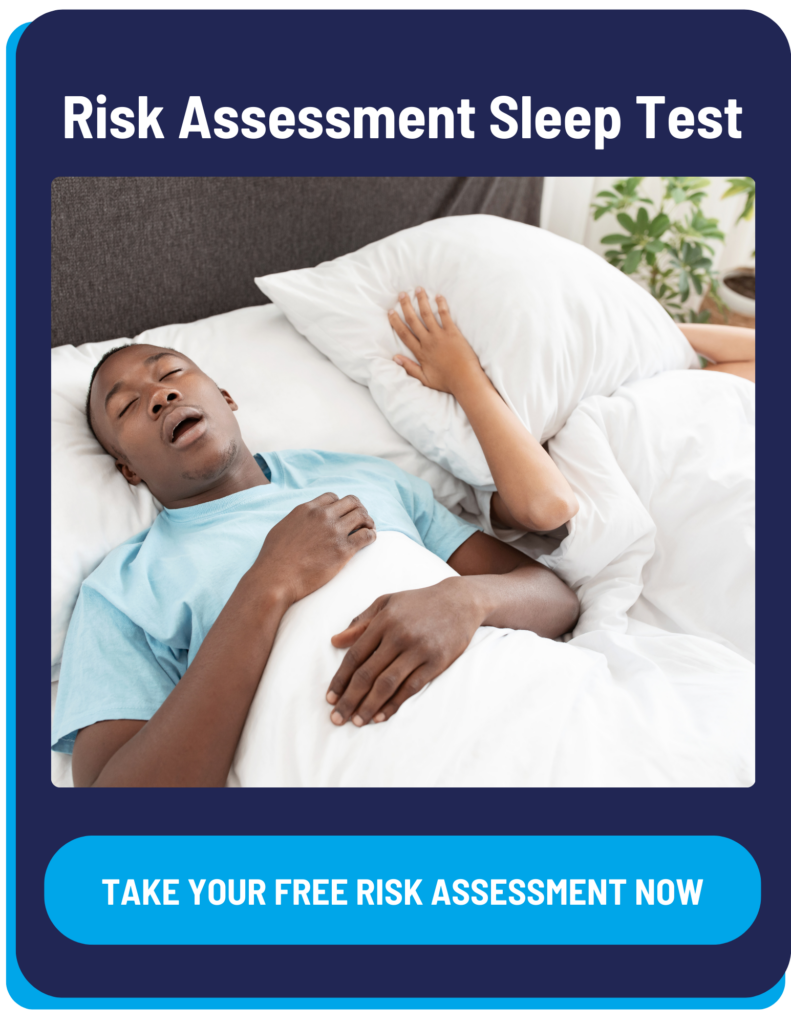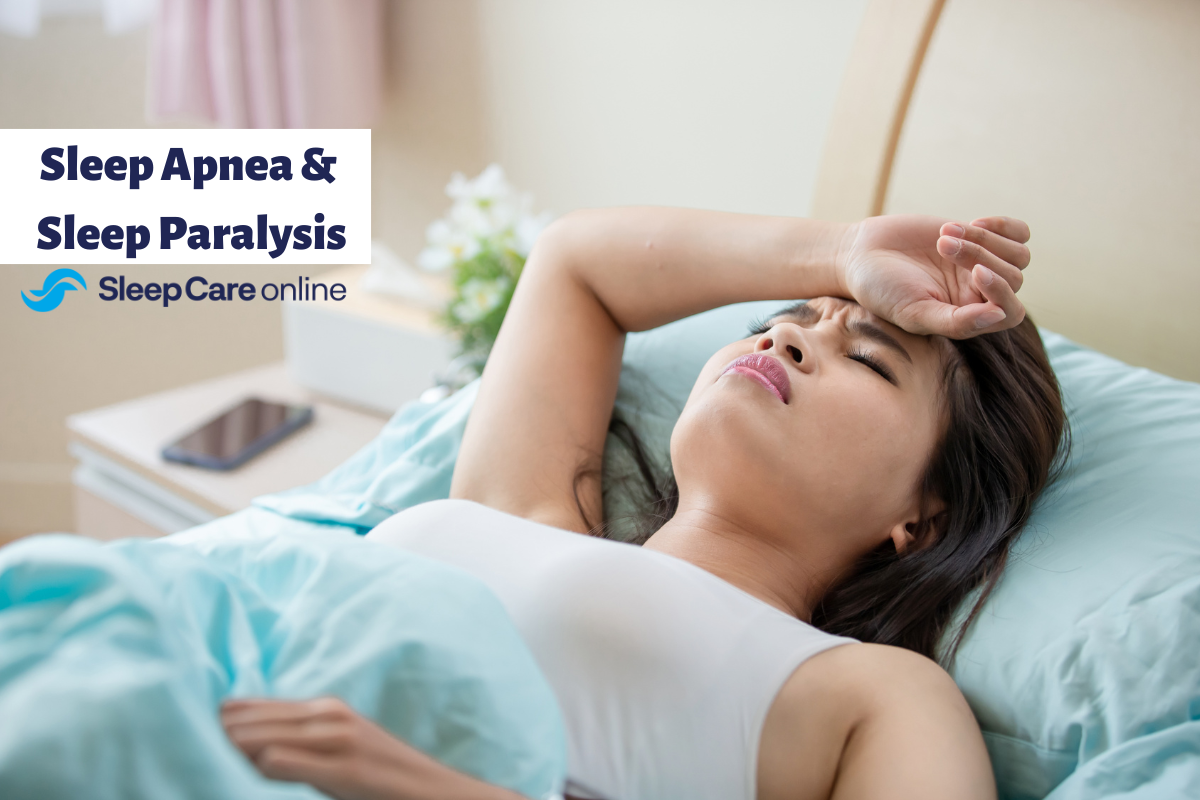With the onset of Alzheimer’s disease among seniors comes other health complications related to brain function and cognitive performance. Sleep deprivation including sleep apnea is compounded by the disease, which can increase with the progression of the brain disorder. Untreated sleep apnea can make managing Alzheimer’s disease more difficult and escalate degeneration.

What is Alzheimer’s Disease?
Alzheimer’s disease is a progressive and incurable brain disorder that causes the brain to diminish in size and brain cells to die over a period of time. Alzheimer’s disease is the most common cause of dementia — a decline in cognitive, behavioral, and social abilities that reduces independence among patients. Additionally, approximately 5.8 million people in the United States age 65 and older live with Alzheimer’s disease.1
What Causes Alzheimer’s Disease?
Research shows there is no precise cause of Alzheimer’s disease. Scientists’ understanding is that as the disease progresses, brain proteins fail to function normally, which disrupts the work of brain cells (neurons) and triggers a series of toxic events. Neurons damage and then lose connections to each other and eventually die.
Most likely a combination of genetic disposition, lifestyle choices, and environmental factors all contribute to the development of the disease.
Symptoms of Alzheimer’s Disease
Symptoms of Alzheimer’s disease progress with the advancement of the disorder. Initially, patients may have difficulty with memory. The memory loss escalates to the point that individuals may not recognize their family or friends or even familiar places.
Gradually the disease degrades cognitive ability and leads to depression and delusions.
How Does Alzheimer’s Disease Affect Your Body?
Along with diminished cognitive functions, the disease also affects physical health especially as it reaches last stages. Alzheimer’s patients may experience:
- Malnutrition or dehydration as the patient forgets to eat and drink
- Stiff muscles
- Chronic fatigue
- Seizures and twitching
- Feet that shuffle or drag when a patient walks as physical ability diminishes
- Trouble standing or sitting up in a chair due to reduced personal control
- Increased susceptibility to infections
- Increased likelihood of experiencing falls and accidents due to unstable mobility and balance
- Constipation or diarrhea and bladder control issues
- Dental problems due to neglected dental care
- Difficulties sleeping often lead to night wakefulness
Does Sleep Apnea Affect Alzheimer’s Disease?
There may be a link between a patient with the early stages of Alzheimer’s disease who also has undiagnosed sleep apnea. Sleep apnea over time if left untreated can have an impact on brain function. Many of the symptoms associated with sleep apnea such as memory loss and poor concentration show how sleep deprivation can compromise brain health.
While Alzheimer’s disease patients already have a tendency toward sleep disorders, an existing sleep apnea condition can complicate the management of the disease and increase stress and severity of symptoms in the patient.
Does Alzheimer’s Disease Affect Sleep Apnea?
Alzheimer’s disease patients may suffer more through progressive symptoms if they are also contending with sleep apnea. Dementia patients with sleep apnea, much like Alzheimer’s disease patients may experience excessive daytime fatigue as they continuously lose sleep at night.
Sleep loss from sleep apnea only compounds the existing symptoms of Alzheimer’s disease. The effects on the brain from sleep deprivation impact memory and brain function which can accelerate the brain decay already occurring from Alzheimer’s disease.
Studies That Link Sleep Apnea and Alzheimer’s Disease
A meta-analysis of nine observational studies suggested that OSA may increase the risk of cognitive decline or Alzheimer’s disease by more than two-fold, and another meta-analysis of five studies suggested that OSA is more prevalent in Alzheimer’s patients.
In addition, several studies suggest that cognitively healthy elderly individuals with OSA may have altered levels of Alzheimer’s disease biological markers (i.e., biomarkers) and that a diagnosis of OSA may further impair Alzheimer’s biomarkers over time. 2
There is an array of data from randomized control trials on whether the use of CPAP improves cognition in adults with OSA. Several studies suggest that CPAP use improves some aspects of cognition such as attention and vigilance in healthy patients.
How to Diagnose Sleep Apnea for Alzheimer’s Patients at Home
Diagnosing sleep apnea in Alzheimer’s patients can be done using an at-home sleep apnea test using Sleep Care Online. Here is how it works:
- With the Complete Care Package, schedule a 10-minute telehealth visit with a healthcare provider to discuss your symptoms, upcoming sleep study, test results, and treatment options.
- A multi-night, disposable home sleep apnea test is mailed to your home to be completed at your convenience.
- A physician analyzes the sleep data and provides a prescription if needed.
- Schedule an optional follow-up appointment (additional fee applies).
- We connect you to sleep experts who can offer customized sleep therapy options, assistance in equipment purchase, and initial set-up.
What Are the Other Ways to Diagnose Sleep Apnea?
Sleep apnea can also be diagnosed using polysomnography, an in-lab sleep study that requires an overnight stay. In-lab studies can evaluate breathing patterns, brain waves, and oxygen saturation levels along with other indicators of sleep apnea during the overnight stay.
For Alzheimer’s disease patients, this process could be difficult. Patients must remain asleep during the duration of the sleep study. A lab is an unfamiliar place, and the patient will be engaging with unfamiliar lab techs, all of which can be distressing to an Alzheimer’s disease patient.
Additionally, the patient will be hooked up to monitoring equipment during the sleep study. The patient may remove the equipment unknowingly due to their diminished state of mind.
An at-home sleep study can be conducted more effectively for Alzheimer’s patients as it does not require moving them to a new location and the minimal equipment used for detecting sleep apnea is less intrusive.
References
1.Mayo Clinic. Alzheimer’s disease
- Bubu OM, Andrade AG, Umasabor-Bubu OQet al. (2020) Obstructive sleep apnea, cognition and Alzheimer’s disease: A systematic review integrating three decades of multidisciplinary research. Sleep Med Rev 50, 101250.




